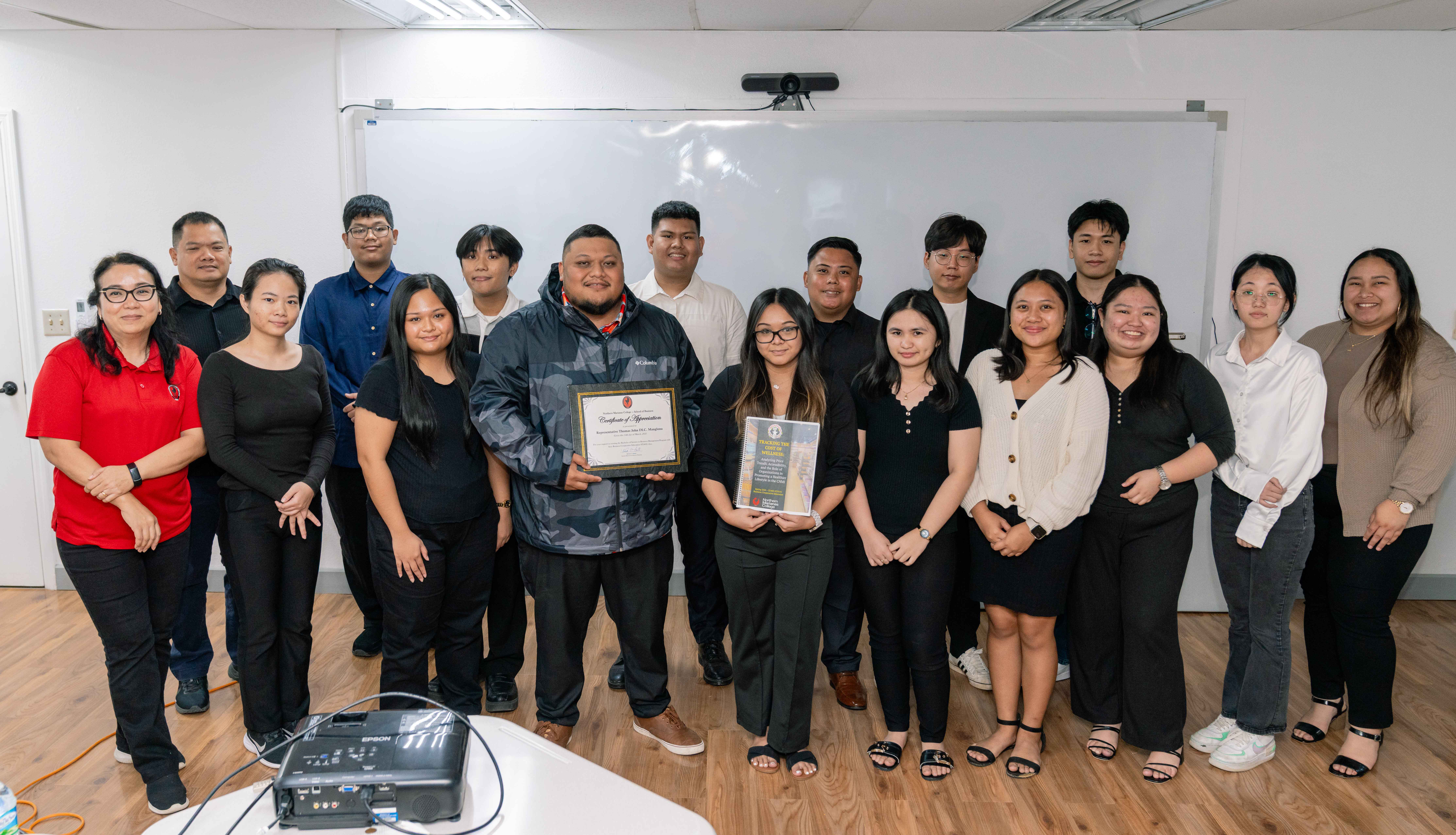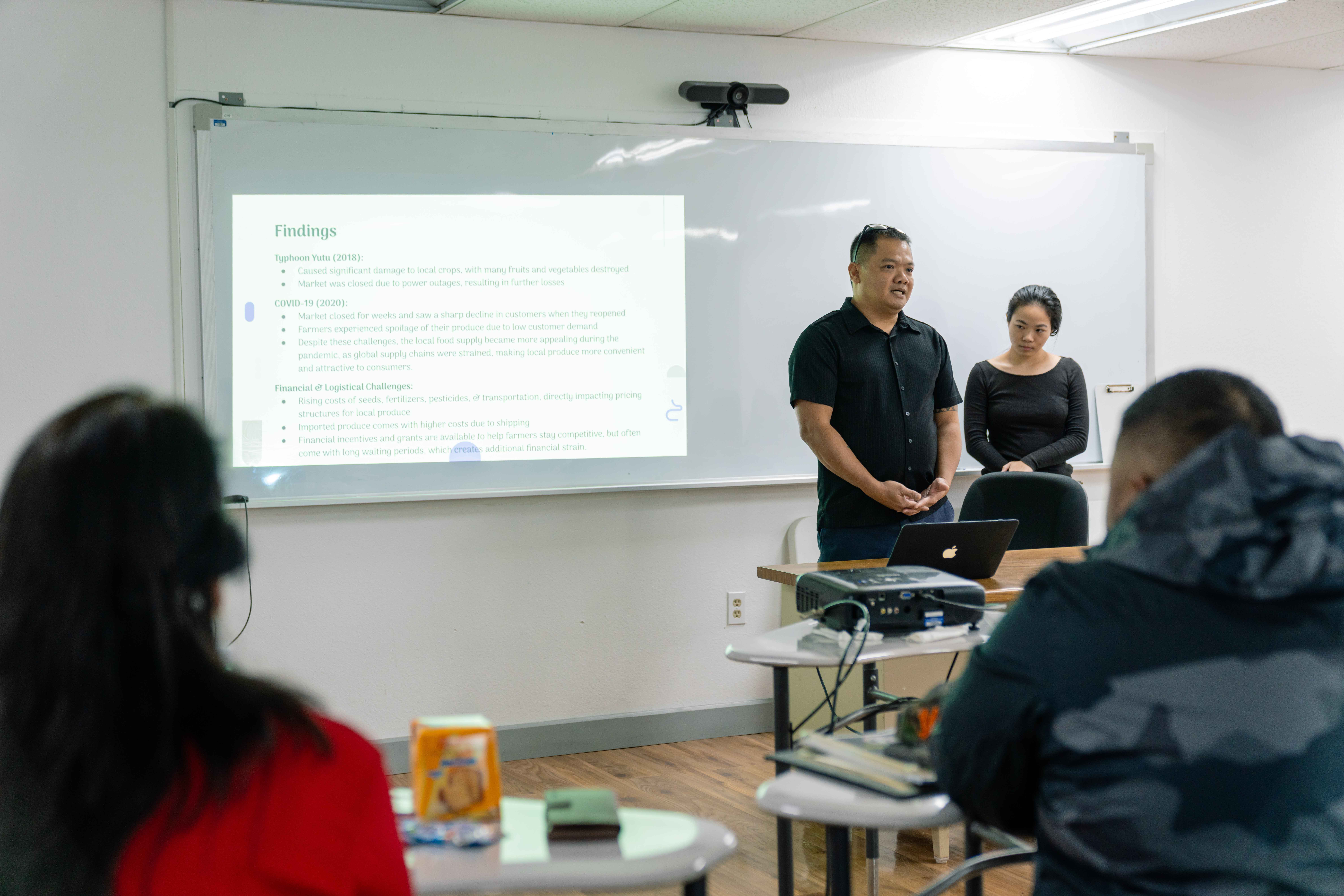Northern Marianas College Business students recently found that high costs limit access to healthier food despite consumer demand and local efforts through a collaborative research project with Representative Thomas John “TJ” DLC. Manglona.
The project, titled “Tracking the Cost of Wellness: Analyzing Price Trends, Accessibility, and the Role of Organizations in Promoting Healthier Lifestyles,” was part of Business Cooperative Education (CE400) that encompasses soon-to-be-graduating seniors from the School of Business.
According to graduating School of Business senior Edward John Sablan, “this research project really opened our eyes. It showed us just how much something as simple as pricing can shape the health choices people make in our own community. What stood out to me most was learning that some organizations don’t just talk about healthy living, they actually invest in it for their staff and the people they serve. It also challenged me to reflect on the role we all play in shaping healthier communities.”
The students worked closely with Representative Manglona, local stores, and organizations to examine the price trends of consumer goods, assess accessibility, and explore how organizations promote healthier lifestyles, while tackling real business challenges and providing data-driven insights. The research culminated in a formal presentation to Representative Manglona, highlighting their analysis and recommendations.
Findings from student research indicate that while consumers recognize the benefits of healthier products, cost remains a significant barrier. Many respondents expressed a preference for purchasing the healthier option if price was not a factor. On average, consumers spend between $50 and $99 on healthy products.
Despite challenges such as funding limitations and population decline, organizations that promote healthy living in the CNMI remain committed. Retailers have also implemented strategies to encourage the purchase of nutritious foods. However, the rising costs of organic products, including eggs and other essentials, have limited the effectiveness of programs like NAP benefits in making these products more accessible.
The contrast between the financial struggles of retailers and the ongoing efforts of health-focused organizations highlights the need for targeted interventions. A promising outcome from this research is the launch of the “Food Price Data Collection in the Non-Contiguous States and U.S. Territories Study” by the Center for Nutrition Policy and Promotion. This five-year initiative will collect critical data on food pricing, providing valuable insights to support future research and policy development aimed at improving food accessibility and affordability.
For more information about NMC’s School of Business, contact Geri Hofschneider at 670-237-6715 or visit marianas.edu.
 Northern Marianas College Business students recently presented findings from their Business Cooperative Education project on “Tracking the Cost of Wellness” to Congressman Thomas John “TJ” Manglona and School of Business Interim Director & Associate Professor Dr. Barbara “Bobbie” Hunter.
Northern Marianas College Business students recently presented findings from their Business Cooperative Education project on “Tracking the Cost of Wellness” to Congressman Thomas John “TJ” Manglona and School of Business Interim Director & Associate Professor Dr. Barbara “Bobbie” Hunter.


